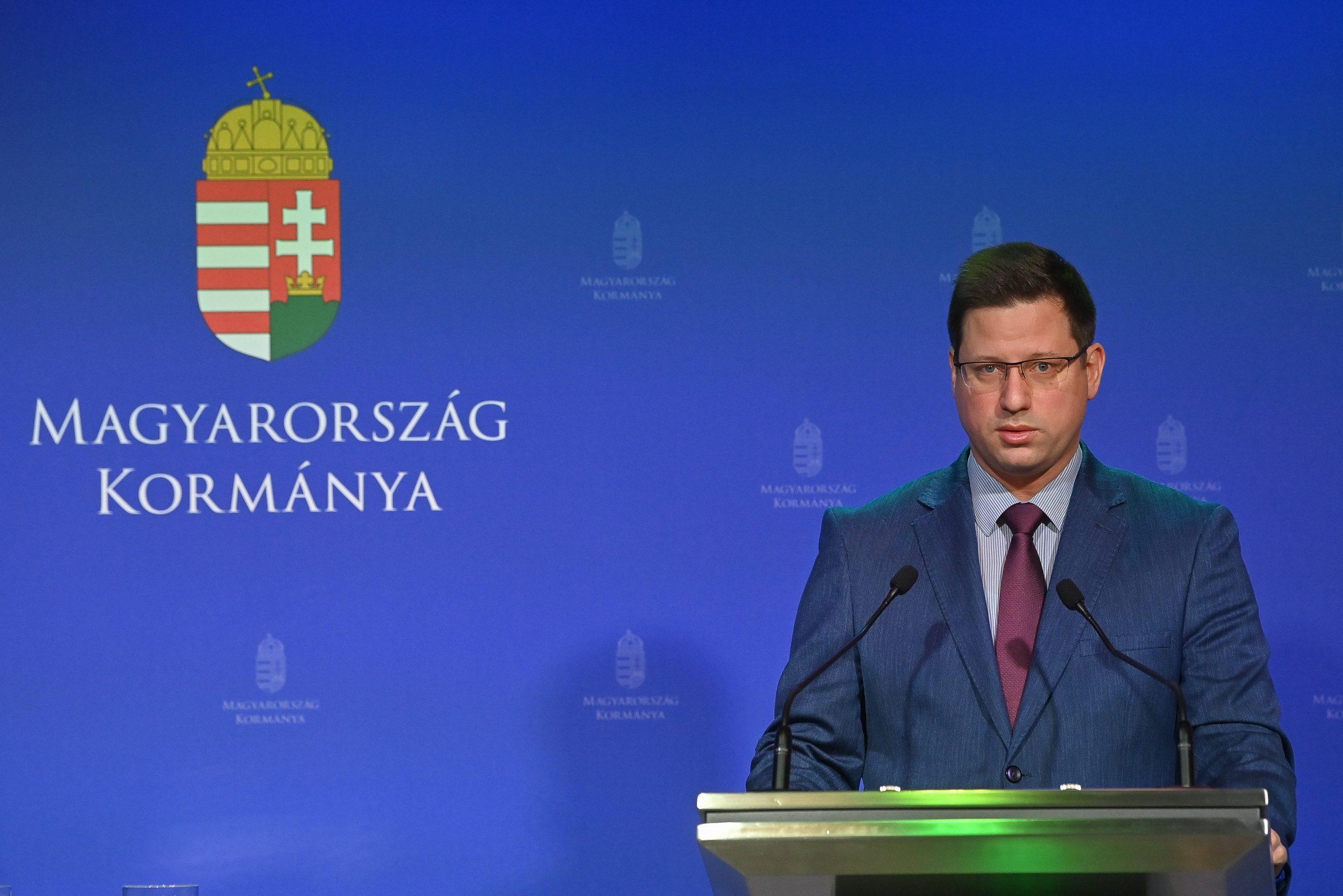Tibor Navracsics calls on the European Commission to reconsider its decision on sanctioning Hungarian universitiesContinue reading

At the end of Wednesday’s government meeting, Ministers Judit Varga, Csaba Lantos, János Lázár, Mihály Varga, István Nagy, Péter Szijjártó, and Tibor Navracsics announced that they will not continue their activities on the boards of trustees of university trusts as of February 15, announced Gergely Gulyás, the Minister of the Prime Minister’s Office, at a press conference in Budapest on Thursday.
At the Government Info meeting, the minister stated that they also expect all government officials to act in this way, i.e. state secretaries, deputy state secretaries, ministerial commissioners, and government commissioners should also resign from their trustee positions.
Gergely Gulyás said that the Hungarian government has always been ready to make reasonable compromises with the European Union, including supporting requests that had no legal basis but did not harm Hungary’s interests. “The European Commission should only be allowed to make demands on the basis of Community law, but we have long since moved beyond that,” he underscored.
He stressed that
no politicians would remain in university public foundations, and if necessary, the government was prepared to amend the terms of office of trustees to a fixed period rather than a lifetime.
News came at the beginning of January that Hungarian universities that operate as public trust foundations or are maintained by such foundations will not receive fresh grants from the EU-funded Erasmus+ exchange and Horizon Europe research and innovation programs.

One of the affected Hungarian universities is the Corvinus University of Budapest, its main building centered at the heart of the capital on the bank of the Danube. Image: Facebook page of Corvinus University of Budapest.
The EU has problems with the institutions’ operating model, which according to them, did not ensure the transparent management of EU funds, as neither public procurement nor conflict of interest rules applied to them. With the resignations, progress may soon happen in the debate, as the Erasmus scholarship is of key importance to Hungary.
At the Government Info meeting, Gulyás also spoke about the war in Ukraine, inflation, the economic situation, sanctions, pension increases and the earthquakes in Turkey, where Hungarian search and rescue teams are also helping with the rescue. He stressed that Hungary is trying in every possible way to help save lives in Turkey. He expressed his sympathy for the victims of the earthquakes.
From Monday to Wednesday, the government held a three-day, out-of-office cabinet meeting in Sopronbánfalva in Western Hungary, which Gulyás said gave the cabinet the opportunity to not only make decisions on specific issues, but also to review strategically important issues. At the cabinet meeting, the minister said that
the most important task for this year was to bring down inflation, protect jobs, and prevent the economy from sinking into recession.
The continuation of industrial and agricultural development is essential for long-term growth, and for this it is very important to have enough energy, Gulyás underlined. He said that the three-day government meeting had focused on the country’s energy strategy up to 2030, presented by Energy Minister Csaba Lantos. Nuclear energy, renewable energies, including solar energy, will continue to play a significant role in this, and grid development is also needed.
If the government can come to an agreement with the European Union and take up not only the non-reimbursable part of the recovery fund for all countries, but also the loan part, they would like to spend it mainly in the energy sector, Gulyás emphasized. The funds would be used to improve the electricity and gas networks and to digitalize the electricity grid. He also said that the government wants to increase energy sovereignty, which requires increasing domestic hydrocarbon production.
The minister also touched upon the battery factory in Debrecen, a major investment by China’s Contemporary Amperex Technology Co. Limited (CATL) with a volume of EUR 7.4 billion, creating 9,000 new jobs. The company is the world’s largest battery manufacturer, and they chose to build their second European plant in Hungary after two and a half years of negotiations, following huge international competition.
However, a series of protests are now taking place against the investment, mostly led by the opposition and foreign political lobby groups. Asked whether the construction of the battery factory will be canceled if met with social resistance, Gulyás said that there is a reason for the social resistance, so it is the task of the investors, the local government, and the government’s investment group to clarify that there are no valid concerns about the investment. The most important thing is to have a clear, unambiguous, and understandable answer to all the concerns, and then there will be no social resistance, he said.
The minister added there was strong international competition for these plants, so it was in foreign interests that they should not be built in Hungary.
Featured photo via MTI/Illyés Tibor